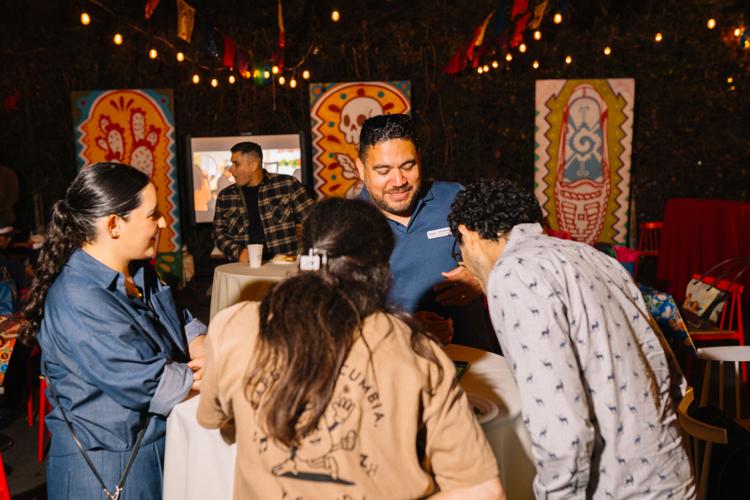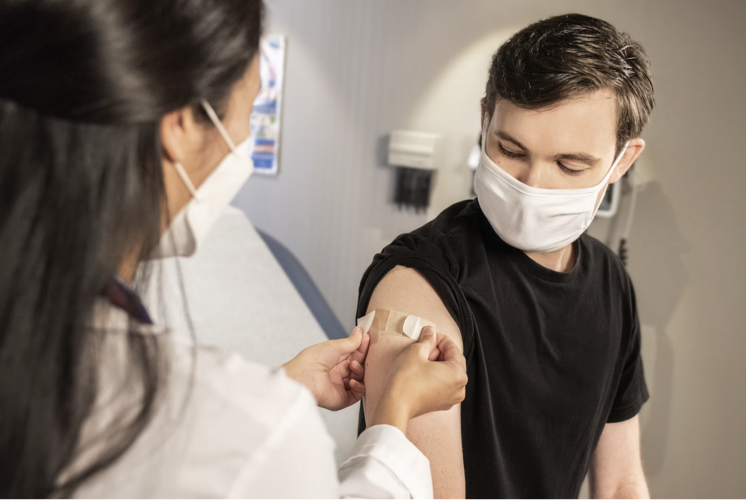
Local health care providers have begun seeing the delayed or canceled medical appointments, which can result in significant health disparities as people forgo necessary and preventative care. Photo by CDC
In response to increased immigration apprehensions in Los Angeles and other cities in the United States, health care providers have expressed the chilling effect on patients, particularly immigrants, who have delayed or canceled medical appointments due to fear of the raids and possible detainment and deportation.
On Monday, on a 6-3 decision, the Supreme Court sided with the Donald Trump administration, ruling that federal immigration officers may briefly detain and question individuals about their legal status solely based on appearance, speaking Spanish or frequenting known day laborer gathering spots.
One local health care provider assisting the majority of Latino patients has begun seeing the delayed or canceled medical appointments, which can result in significant health disparities as people forgo necessary and preventative care.
Zócalo Health, a primary care provider group founded by Erik Cardenas and Marissa Hardin in 2021, focuses on delivering culturally-sensitive, accessible and affordable healthcare to the Latino community of California.
Through Zócalo’s work serving Latino families across L.A. and California, Cardenas said he has begun seeing patients delaying in-person care out of fear they’ll be harassed at clinics or hospitals, a surge in virtual visits as families retreat into their homes and an increase in mental health needs, with stress and anxiety spiking in communities already facing inequities.
“The Supreme Court’s decision to allow sweeping immigration operations in L.A. casts a long shadow over the promise of equality in America,” Cardenas said. “Already, we are seeing the ripple effects. Public life is shrinking and most concerning, people will put off care until they can no longer ignore their symptoms, leading to avoidable emergency room visits, readmissions and costly hospital stays.”
Zócalo Health’s care systems consist of doctors, nurses and mental health specialists, offering patients access to in-person and virtual care through a membership model accessible to anyone with Medi-Cal.
Cardenas told CALÓ News that it is not only patients he has seen being more afraid to come into in-person facilities, but also many health care providers and workers.
“We have seen that a lot of the immigration enforcement has been happening across California. It has been a very, very serious challenge for folks who are just struggling to find safety and refuge in healthcare at this time. It's something that does instill a lot of uncertainty, discomfort and fear not just our patients, but even our employees,” he said. “ Many of our employees are expressing anxiety, stress and they are worried about the patient they have built a relationship with, on top of also worrying sometimes about their own families.”
Katherine Peeler, medical advisor at Physicians for Human Rights (PHR), an advocacy organization that uses science and medicine to prevent mass atrocities and severe human rights violations, also recently talked about the detrimental effects of the raids in places that were once considered to be safe and guarded.
“The aggressiveness of these raids, and their occurrence near places previously designated as protected, such as schools, hospitals and courthouses, is causing intense anguish and trauma across communities, including health care professionals,” she said in a statement. “Families are being destroyed as they experience separation due to the detention or deportation of parents, or the preventable death of a child unable to access cancer care. Children are losing their parents and watching their loved ones be taken away in handcuffs. They are scared to go to school.”
When asked about the intense anguish and trauma across communities that PHR described, Cardenas said that despite seeing fewer people coming to in-person visits, Zocalò Health has seen an increase in mental health referrals or patients asking to see a therapist.

Erik Cardenas (middle), cofounder of Zócalo Health, a primary care provider group. Photo by Zócalo Health
“Latino communities are largely underserved in obtaining physical care, but oftentimes it also revolves around accessing therapists. There's also a stigma of mental health within our culture. When we hired our first therapist, we knew that we were going to have challenges around that. We quickly overcame a lot of that by normalizing conversations and having community events that allowed us to really share with people the importance of mental health,” he said.
Cardenas also said that 40% of their patient members are dealing with anxiety and depression.
“It's not just that one individual, it's an entire household that is dealing with a higher acuity of cases of anxiety, depression or PTSD. Our team has been working hard to prepare and step up to this moment when we're just seeing an above-normal demand for mental health services.”
To better protect their patients and their needs and concerns in the face of new threats, Cardenas said they have been lucky to be able to adapt and offer services that make them unique, such as telehealth. Zócalo Health offers same-day or next-day video appointments with doctors with whom patients can receive a diagnosis and RX where appropriate, as well as build a personalized care plan.
“We take really great pride in the fact that we offer care through various modalities. So if fear plays a key role in that, we have a lot of flexibility in doing that; we are very flexible in how we set up our model and that it's hybrid,” he said. “Telehealth is a tool that is extremely valuable right now, especially in situations where people are delaying care out of fear. We were happy to see people in person, but we've actually been able to let people know that if they're not willing to go to a clinic, then we will come to them.”
However, healthcare providers in low-income communities often face financial hurdles, such as the expense of equipment, software, and training, when attempting to offer telehealth services.
Although Medi-Cal does cover telehealth services and appointments, they do not always cover the initial costs required to set up the necessary infrastructure. As stated by the California Department of Health Care Services (DHCS), Medi-Cal does not pay for telehealth equipment purchases.
“There is a lot of demand for our style of care and we are happy that we can step up, but at the same time, we are worried about the communities where we're not yet serving, where clinics can't invest in expanding their telemedicine work or invest in technology, and that's where those communities are gonna hurt,” Cardenas said.
Cardena said despite the growing ICE raids, they will continue to protect their patients in and out of their health care facilities. “We are taking this responsibility seriously, to adapt to this reality and continue to meet patients where they feel safest,” he said. “Even during these times, prioritize your health because that is what we all deserve. We are committed to continuing to build safety and refuge in healthcare even if it means just doing it a little differently at this current time.”











(0) comments
Welcome to the discussion.
Log In
Keep it Clean. Please avoid obscene, vulgar, lewd, racist or sexually-oriented language.
PLEASE TURN OFF YOUR CAPS LOCK.
Don't Threaten. Threats of harming another person will not be tolerated.
Be Truthful. Don't knowingly lie about anyone or anything.
Be Nice. No racism, sexism or any sort of -ism that is degrading to another person.
Be Proactive. Use the 'Report' link on each comment to let us know of abusive posts.
Share with Us. We'd love to hear eyewitness accounts, the history behind an article.